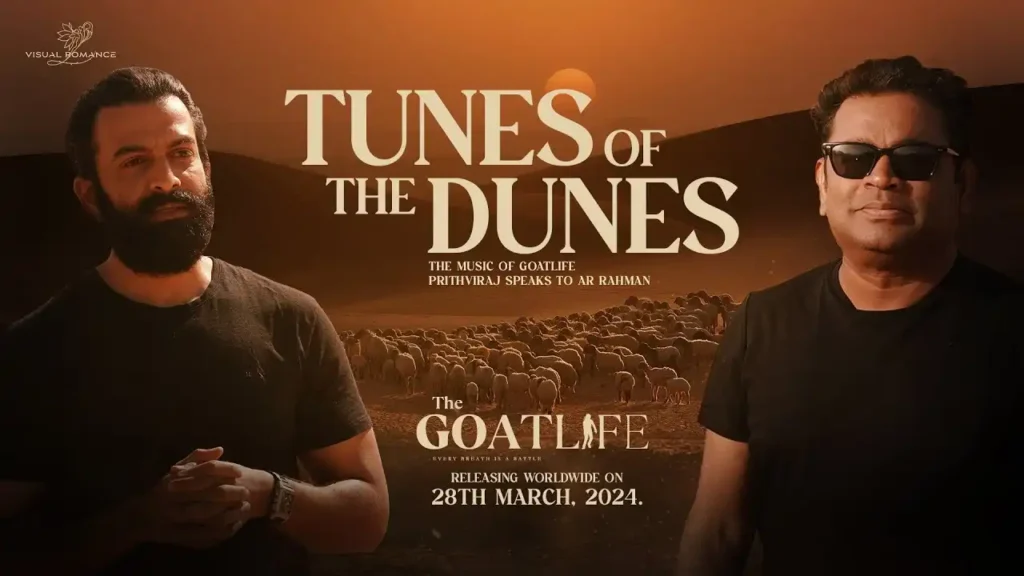Have you ever wondered about the soulful melodies that have captivated generations in India? Behind every enchanting song is a talented lyricist, a wordsmith who weaves a magic with their verses. Let’s embark on a journey through the rich tapestry of Indian lyrical history, exploring the pioneers who paved their way and the enduring influence of classical music and poetry.
Kalidasa is the “Shakespeare of India”.
Often hailed as the “Shakespeare of India”, Kalidasa is a name synonymous with Sanskrit literature. Works like the epic Abhijnana Shakuntala and the musical Meghdoota are known for their poetic beauty, depth of emotion and complex storytelling. Kalidasa’s contribution greatly influenced subsequent Indian literature and inspired countless writers and artists.
Jayadeva: Author of “Gita Govinda”.
The 12th century poet Jayadeva is best known for his composition Gita Govinda, a celebration of the love between Krishna and Radha. Gita Govinda is a treasure trove of devotional poetry, full of beautiful imagery and inspiring language. Jayadeva’s work has greatly influenced Indian classical music, especially the bhajan tradition.
Amir Khusrau: Sufi poet and composer
Amir Khusrau, a 13th century Sufi poet and composer, is a known contributor to Persian, Urdu and Hindi literature. His works often explored themes of love, mystery and social commentary. Khusro is also credited with inventing Qawwali, the popular Sufi devotional music. His influence can be seen in the development of Urdu poetry and music in the Indian subcontinent.
Influence of classical music and poetry
The development of Indian lyricism is intimately connected with classical musical and poetic traditions. Classical Hindustani music has provided lyricists with rich musical structures to express themselves through complex ragas and melodies. The emphasis on the richness and emotional depth of Persian and Urdu poetry also greatly influenced Indian lyricism.
Pioneers of Indian music like Kalidasa, Jayadeva and Amir Khusrau left an indelible mark on Indian culture. Even today, their works inspire and convince audiences. A deeper appreciation for the art and creativity of India’s lyricists can be gained by exploring the rich musical and poetic traditions of antiquity.
The Golden Era of Indian Lyricists: A Musical Journey


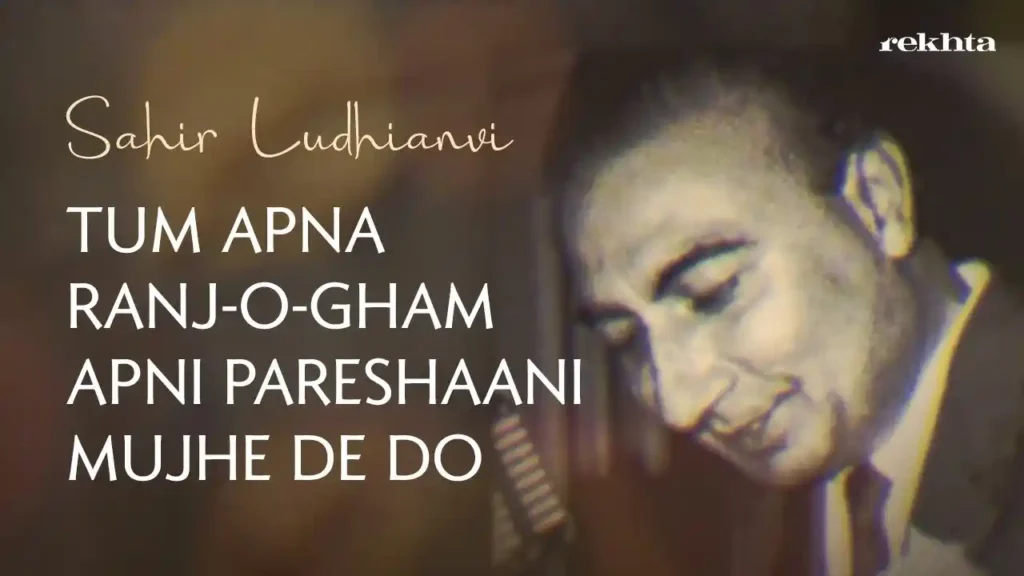
Have you ever wondered if there is any magic behind those timeless songs that tug at your heartstrings for decades? Not only songs, but lyrics weave a tapestry of emotions, stories and social images. The golden age of Indian lyricists from 1950 to 1970 was a time of unparalleled creativity and influence on popular culture Let us delve into the three heroes who shaped the world of this period: Sahir Ludhianvi, Hasrat Jaipuri and Anand Bakshi.
Sahir Ludhianvi: Folk poet
Sahir Ludhianvi was more than just a lyricist; He was a poet who used his own words to address social and political issues. His songs were often about love, loss and the human condition, but they also had strong messages of social justice. Songs like “Kabhi Kabhi” and “Yeh Duniya Agar Mil Bhi Jaye” became the anthems of their time, resonated with the masses and sparked discussions on social ills
Hasrat Jaipuri: A master of love music
While Sahir Ludhianvi focused on social issues, Hasrat Jaipuri was a master of romantic music. His songs painted vivid pictures of love, passion and desire. Songs like “Tumko Na Bhool Payenge Hum” and “Aaj Phir Jeene Ki Tamanna Hai” captured the essence of romantic love and became timeless classics.
Anand Bakshi: Versatile lyricist
Anand Bakshi was a versatile lyricist who could write about anything from love to patriotism. His music was known for its simplicity, clarity and coherence. Songs like “Ye Resham Ka Tohfa” and “Mere Desh Ki Dharti” showcased her versatility and ability to connect with audiences of all age groups.
Influence on popular culture
The songwriters of the 50s and 70s had a huge impact on popular culture. Their songs not only entertained but also reflected people’s thoughts and feelings. They have become an integral part of the Indian psyche, influencing fashion, lifestyle and lifestyle.
Social and political issues
Many songs from this period addressed important social and political issues. They spoke out against social injustice, poverty and discrimination. Songwriters like Sahir Ludhianvi used their words to raise awareness and inspire change.
Wonderful music and its legacies
Music composed during this golden age is still celebrated today. They have stood the test of time and remain as popular as ever. For them, the songs, music and emotions have become iconic and unforgettable.
The golden age of Indian composers was an age of unparalleled creativity and influence. Sahir Ludhianvi, Hasrat Jaipuri and Anand Bakshi among many other talented lyricists left an indelible mark on Indian popular culture. Their music has inspired, entertained and connected with listeners for generations.
Modern Indian Lyrics: A Fusion of Tradition and Western Influence
Have you ever wondered how your favourite Bollywood songs have evolved over time? From the organic beats of the Golden Age to the energetic beats of today, Indian music has undergone a dramatic transformation. One of the main reasons for this change is the growing influence of Western music and technology. Explore the world of contemporary Indian songwriters, examining how they blend traditional Indian poetry with Western musical techniques and digital tools.
The Lyrical Masters: Irshad Kamil, Javed Akhtar, and Amitabh Bhattacharya
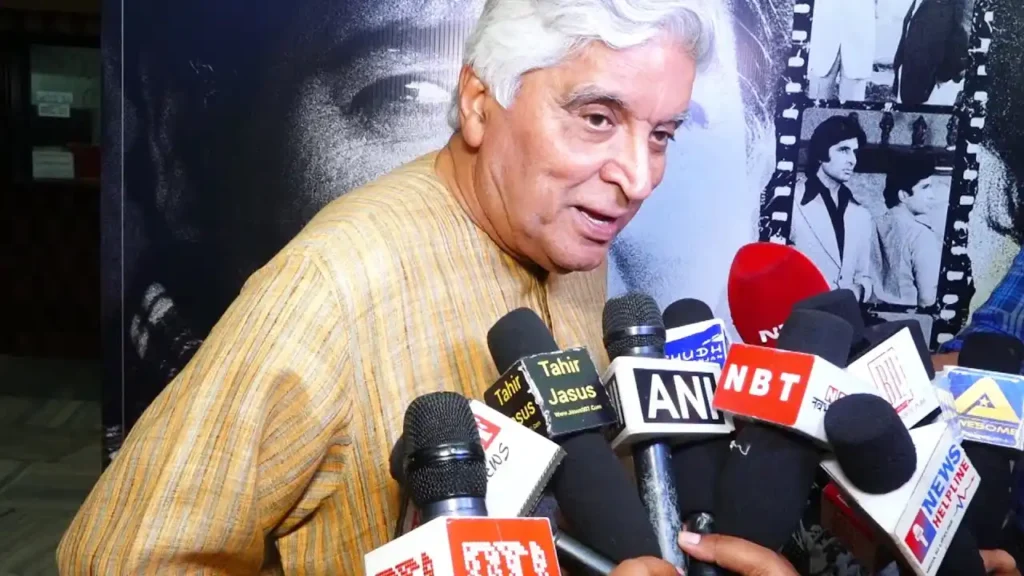
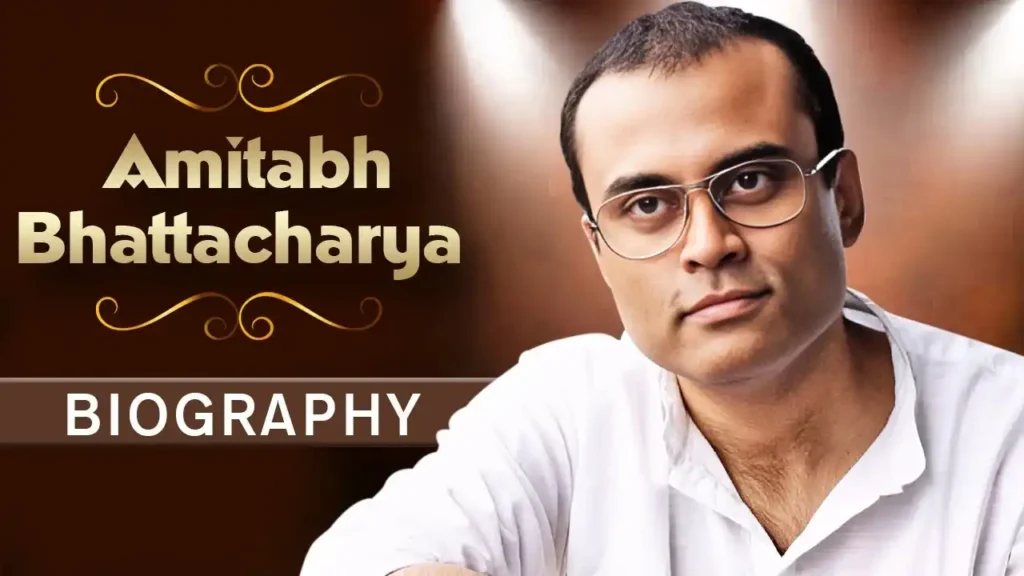
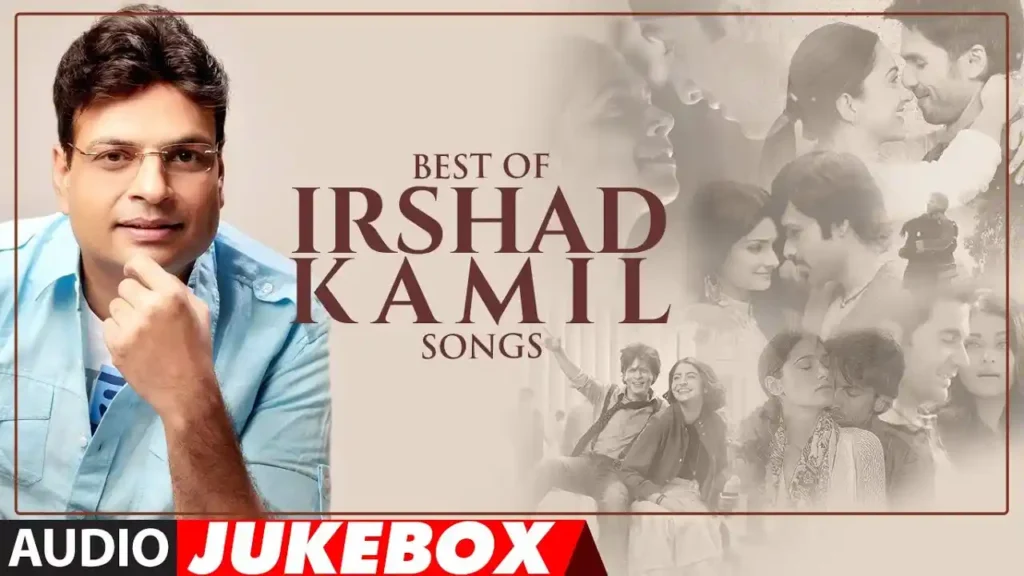
The three names that have ruled the Indian music industry in recent years are Irshad Kamil, Javed Akhtar and Amitabh Bhattacharya. These lyricists have not only captivated audiences with their poetic prowess but have also played an important role in the direction of modern Indian music.
- Irshad Kamil: Known for his ability to create songs that resonate with young minds, Kamil has written many chart-topping songs. Her work often explores love, heartbreak, and social issues, and she’s not afraid to experiment with genres and styles.
- Javed Akhtar: A legendary lyricist with a career spanning decades, Akhtar’s work is characterized by depth, social commentary and philosophical undertones He has written some of the most iconic songs in Indian cinema and has a huge impact on young lyricists.
- Amitabh Bhattacharya: A relative newcomer to the scene, Bhattacharya has quickly established a reputation for his unique and often unconventional music and his work is characterized by intellectual depth and ability to blend Indian traditions a mixture of poetry and Western contemporary influences.
Western musical influences
Indian music has been heavily influenced by western music, and this is reflected in the work of many contemporary composers. From using English words and phrases to incorporating western musical structures, Indian songwriters are constantly experimenting with new sounds.
One of the most important ways in which Western music has influenced Indian music is through the use of fusion techniques. Fusion music combines elements from different musical traditions and is very popular in India. Songwriters are often called upon to write songs that blend traditional Indian music with western rhythms and instrumentals. This mix creates a unique and exciting sound that appeals to a wide range of listeners.
The role of technology
Besides western music, technology has also played an important role in shaping the contemporary Indian music scene. Digital tools have made it easier for songwriters to collaborate with musicians from around the world and experiment with new sounds.
Additionally, the rise of social media has allowed songwriters to engage directly with their fans and receive feedback on their work. This created a democratic and collaborative approach to songwriting, encouraging songwriters to take risks and try new things
The world of contemporary Indian music is vibrant and exciting. Blending traditional Indian poetry with western musical influences and embracing new technologies, songwriters create new, timeless songs The work of Irshad Kamil, Javed Akhtar and Amitabh Bhattacharya is a testament to the versatility of Indian songwriters they were more productive as the music industry progressed.
Songwriters in the Fields: Musical Journeys
Have you ever wondered why Hindi, Tamil or Telugu lyrics are so catchy? Or how do lyricists in Malayalam, Kannada and Bengali bring such unique poetic styles to their local languages? Let us embark on a musical journey to explore the worlds of lyricists across India and their fascinating music and themes.
Musical Music in India
India’s rich cultural heritage is reflected in its vibrant film industries, each with its own unique style and language. Hindi, Tamil and Telugu films commonly referred to as the “Big Three” have produced many wonderful films and songs that have captivated audiences worldwide and the music composers behind these songs play an important role in the films story and in the formation of emotions.
Hindi Cinema: Diversity
Often referred to as Bollywood, Hindi cinema has had a profound influence on Indian popular culture. Hindi film screenwriters have drawn inspiration from a variety of sources including classical poetry, folk songs and western music. Themes of love, loss, social issues, and spirituality are often explored. Some of the famous songwriters of Hindi cinema include Javed Akhtar, Gulzar and Anand Bakshi.
Tamil Cinema: The Soul of South India
Tamil cinema known as Kollywood is another major film industry in India. Lyricists in Tamil cinema often include Tamil classics and folk songs in their work. Themes of love, family and social justice are often explored. Some of the most famous lyricists in Tamil cinema include Vali, Vairamuthu and Madhan Karki.
Telugu Cinema: A Synthesis of Tradition and Modernity
Telugu cinema also known as Tollywood has gained popularity over the years. Lyricists in Telugu cinema often combine traditional Telugu poetry with contemporary influences. A wide variety of topics are explored, including love, family and social issues. Some of the most famous lyricists in Telugu cinema include Sirivennela Seetharama Sastry, Veturi Sundarram Murthy and Chandra Bose.
Outside of the big three: songwriters in another language
The Indian film industry is dominated by Hindi, Tamil and Telugu films, but there are many other regional languages with rich film traditions. Malayalam, Kannada and Bengali lyricists have contributed immensely to their film careers.
Malayalam Cinema: A Poetic Odyssey
Malayalam cinema is commonly referred to as Mollywood and is known for its poetry and music. Lyricists in Malayalam cinema often include Malayalam classics and folk songs in their work. They explore love, nature, and life. Malayalam cinema has some famous lyricists like P.S. [ PubMed ] Bhaskaran, S.R. Haridas, and Kaithpram Damodaran Nambuthiri.
Kannada Cinema: Cultural Weaving
Kannada films, also known as sandalwood, have a strong regional following. Songwriters in Kannada cinema often explore love, family and social issues. They incorporate Kannada poetry and classical folk songs into their work. Some of the famous composers of Kannada cinema include V.S. Nagendra Prasad, Jayanta Kaikini and Kaviraj.
Bengali Cinema: A Literary Tradition
Often referred to as Tollywood, Bengali cinema has a rich literary tradition. Writers of Bengali films often draw inspiration from Bengali literature and folk songs. They explore love, loss, and life. Some of the most famous lyricists in Bengali cinema include Rabindranath Tagore, Nachiketa Chakraborty, S.D. Burman wrote.
The world of Indian songwriters is incredibly diverse, with each region offering unique genres and themes. From the poetic beauty of Malayalam music to the soulful melodies of Tamil music, Indian lyricists have enriched the culture of the country.
A Recap About It
Indian lyricists have contributed immensely to the culture of the country. They have created timeless music that has touched the hearts of millions and become an integral part of Indian folk culture. The ability to blend traditional poetry with contemporary influences has resulted in a unique and varied body of work.
The lasting impact of Indian lyricists can be seen in the continued popularity of their music. Their songs have been translated into various languages and have inspired countless musicians and artists around the world. The legacy of Indian lyricists will determine the future of Indian music for generations to come.
The future of Indian songwriters looks promising. With the rise in popularity of Indian cinema and music, there will be more opportunities for songwriters to showcase their talent. As the country develops we can see new and innovative genres emerging. There is no doubt that Indian lyricists play an important role in shaping India’s cultural landscape.
